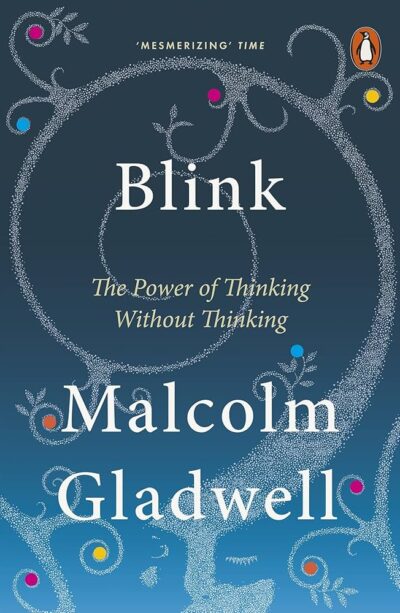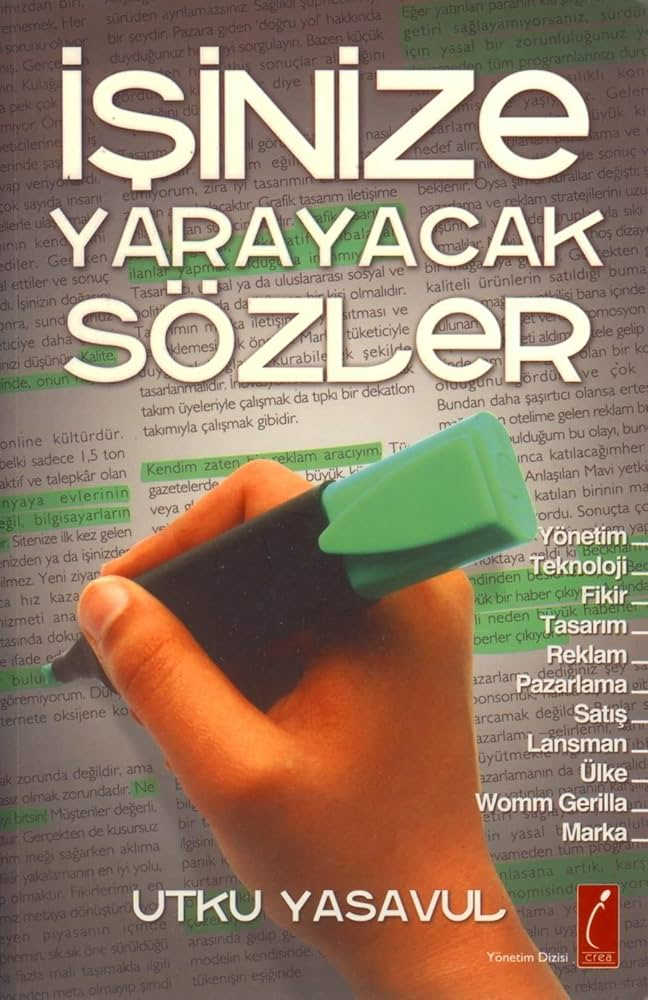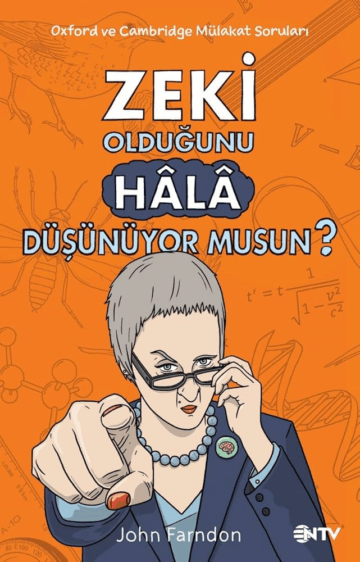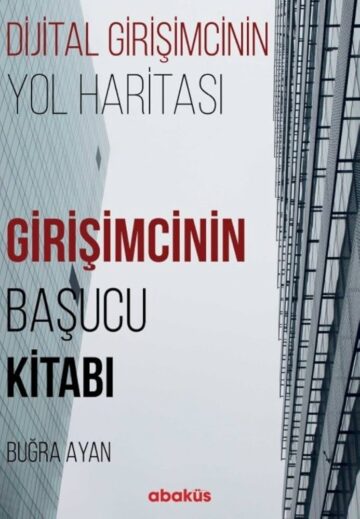Blink – The Power of Thinking without Thinking
2005
Kişisel Gelişim
Yazar
: Malcolm GladwellYayınevi
: Penguen Yayınevi
ÖZET
- The conscious strategy is entirely below the surface of consciousness.
The adaptive unconscious that the task of making sense of ourselves and our behavior requires that we acknowledge there can be as much value in the blink of an eye as in months of rational analysis.
- “Thin-slicing” refers to the ability of our unconscious to find patterns in situations and behavior based on very narrow slices of experience.
- Couples who ended up in divorce is that when one partner would ask for credit, the other spouse wouldn’t give it.
And with the happier couples, the spouse would hear it and say, ‘You’re right.’
That stood out.
When you nod and say ‘uh-huh’ or ‘yeah,’ you are doing that as a sign of support, and here she never does it, not once in the entire session.
- “People are in one of two states in a relationship,” Gottman went on.
“The first is what I call positive sentiment override, where positive emotion overrides irritability.
It’s like a buffer.
Their spouse will do something bad, and they’ll say, ‘Oh, he’s just in a crummy mood.’
Or they can be in negative sentiment override, so that even a relatively neutral thing a partner says gets perceived as negative.
In the negative sentiment override state, people draw lasting conclusions about each other. If their spouse does something positive, it’s a selfish person doing a positive thing.
It’s really hard to change those states, and those states determine whether when one party tries to repair things, the other party sees that as repair or hostile manipulation.
- Four Horsemen:
- Defensiveness
- Stonewalling
- Criticism and
- Contempt
But if I speak from a superior plane, that’s farmore damaging, and contempt is any statement made from a higher level.
- Having someone you love express contempt toward you is so stressful that it begins to affect the functioning if your immune system.
“Contept is closely related to disgust, and what disgust and contempt are about is completely rejecting and excluding someone from the community.
The big gender difference with negative emotions is that women are more critical, and men are more likely to stonewall.
We find that women start talking about a problem, the men get irritated and turn away, and the women get more critical, and it becomes a circle.
But there isn’t any gender difference when it comes to contempt.
- Next time you meet a doctor, and you sit down in his office and he starts to talk, if you have the sense that he isn’t listening to you, that he’s talking down to you, and that he isn’t treating you with respect, listen to that feeling. You have thin-sliced him and wanting.
- Damage to a small but critical part of the brain called the ventromedial prefrontal cortex, which lies behind nose.
The ventromedial area plays a critical role in decision making.
It works out contingencies and relationships and sorts through the mountain of information we get from the outside world, prioritizing it and putting flags on things that demand our immediate attention.
People with damage to their ventromedial area are perfectly rational.
They can be highly intelligent and functional, but they lack judgment.
- Our first impressions are generated our experiences and our environment, which means that we can change our first impressions – we can alter the way we thin-slice – by changing the experiences that comprise those impressions.
- Truly successfull decision making relies on a balance between deliberate and instictive thinking.
- Delibrate thinking is a wonderful tool when we have the luxury of time, the help of a computer, and a clearly defined task, and the fruits of that type of analysis can set the stage for rapid cognition.
In good decision making, frugality matters reduced it to its simplest elements.
- We shouldn’t at all be surprised that Pepsi’s dominance in blind taste tests never translated to much in the real world.
Why not?
Because in the real world, no one ever drinks Coca-Cola blind.
Sure, people like a sweeter product decisions in a sip test, but people don’t make their product decisions on sip tests.
Coke’s problem is that the guys in white lab coats took over.
- When you are in the product development world, you become immersed in your own stuff, and it’s hard to keep in mind the fact that the customers you go out and see spend very little time with your product.
They know the experience of it then and there.
But they don’t have any history with it, and it’s hard fort hem to imagine a future with it, espacially if it’s something very different.
- Just come to you, blink.
Practice of inferring the motivations and intentions of others is classic thin-slicing.
- Facial Action Coding System, or FACS, five-hundred-page document.
- Face is an enormously rich source of information about emotion.
The information on our face is not just a signal of what is going on inside our mind.
It is what is going on inside our mind.
- The classic model for understanding what it means to lose the ability to mind-read is the condition of autism.
When someone is autistic, he or she is, “mind-blind.”
Their first-impression apparatus is fundamentaly disabled, and the way that people with autism see the world gives us a very good sense of what happens when our mind-reading faculties fail.
- FMRI (functional magnetic resonance imagery), a highly sophisticated brain scanner that shows where the blood is flowing in the brain at any given time – and hence, which apart of the brain is in use.
- Our mind, faced with a life-threatening situation, drastically limits the range and amount of information that we have to deal with.
Sound and memory and broader social understanding are sacrificed in favor of heightened awarenessof the threat directly in front of us.
- ‘A dog in the hunt doesn’t stop to stratch its fleas.’
- What police training does, at its best, is teach officers how to keep themselves out of this kind of trouble; to avoid the risk of momentanry autism.
- Mind reading, as well, is an ability that improves with practice.
- A snap judgment.
This is the gift of training and expertise – the ability to extract an enormous amount of meaningful information from the very thinnest slice of experience.
To a novice, that incident would have gone by in a blur.
Every moment – every blink – is composed of a series of discrete moving parts, and every one of those parts offers an opportunity for invervention, for reform, and for correction.
- Taking our powers of rapid cognition seriously means we have to acknowledge the subtle influences that can alter or undermine or bias the products of our unconscious.






